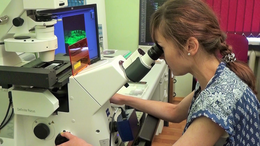
Back Empirie ALS منهج تجريبي Arabic Емпирическо изследване Bulgarian অভিজ্ঞতাভিত্তিক গবেষণা Bengali/Bangla Empirický výzkum Czech Empirie German Investigación empírica Spanish تحقیق تجربی Persian Empiirinen tutkimus Finnish Recherche empirique French

Empirical research is research using empirical evidence. It is also a way of gaining knowledge by means of direct and indirect observation or experience. Empiricism values some research more than other kinds. Empirical evidence (the record of one's direct observations or experiences) can be analyzed quantitatively or qualitatively. Quantifying the evidence or making sense of it in qualitative form, a researcher can answer empirical questions, which should be clearly defined and answerable with the evidence collected (usually called data). Research design varies by field and by the question being investigated. Many researchers combine qualitative and quantitative forms of analysis to better answer questions that cannot be studied in laboratory settings, particularly in the social sciences and in education.
In some fields, quantitative research may begin with a research question (e.g., "Does listening to vocal music during the learning of a word list have an effect on later memory for these words?") which is tested through experimentation. Usually, the researcher has a certain theory regarding the topic under investigation. Based on this theory, statements or hypotheses will be proposed (e.g., "Listening to vocal music has a negative effect on learning a word list."). From these hypotheses, predictions about specific events are derived (e.g., "People who study a word list while listening to vocal music will remember fewer words on a later memory test than people who study a word list in silence."). These predictions can then be tested with a suitable experiment. Depending on the outcomes of the experiment, the theory on which the hypotheses and predictions were based will be supported or not,[1] or may need to be modified and then subjected to further testing.
- ^ Goodwin, C. J. (2005). Research in Psychology: Methods and Design. USA: John Wiley & Sons, Inc.
© MMXXIII Rich X Search. We shall prevail. All rights reserved. Rich X Search